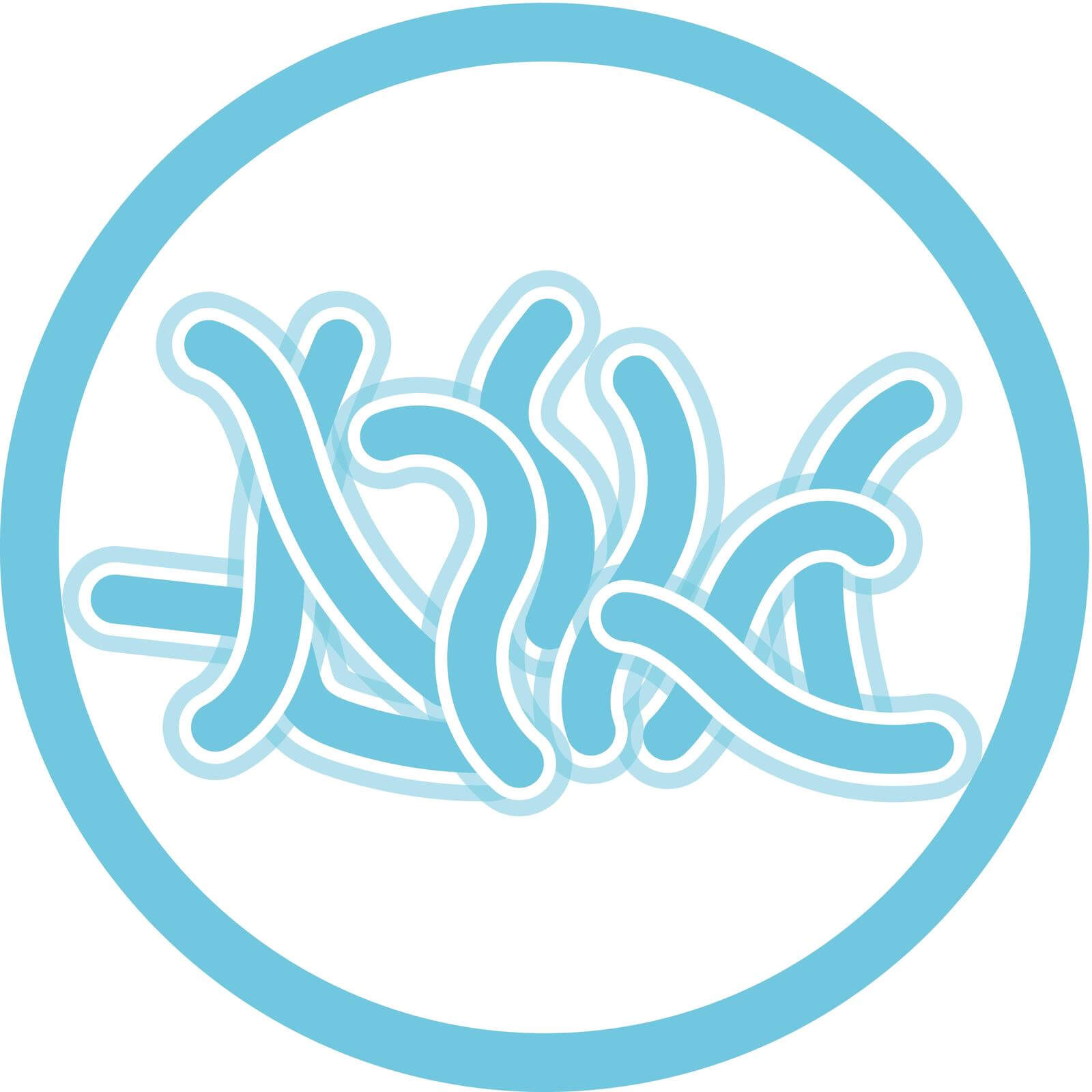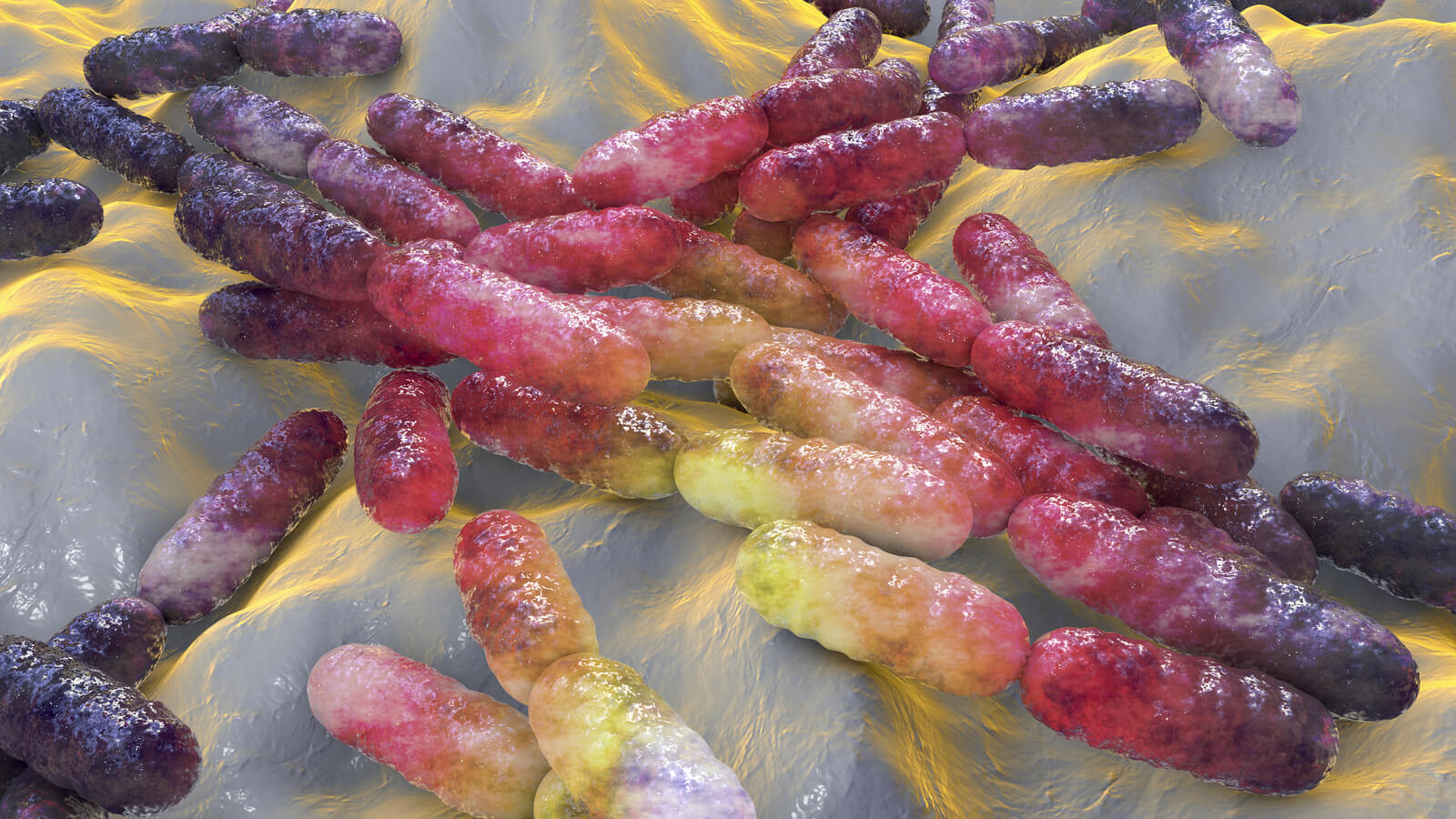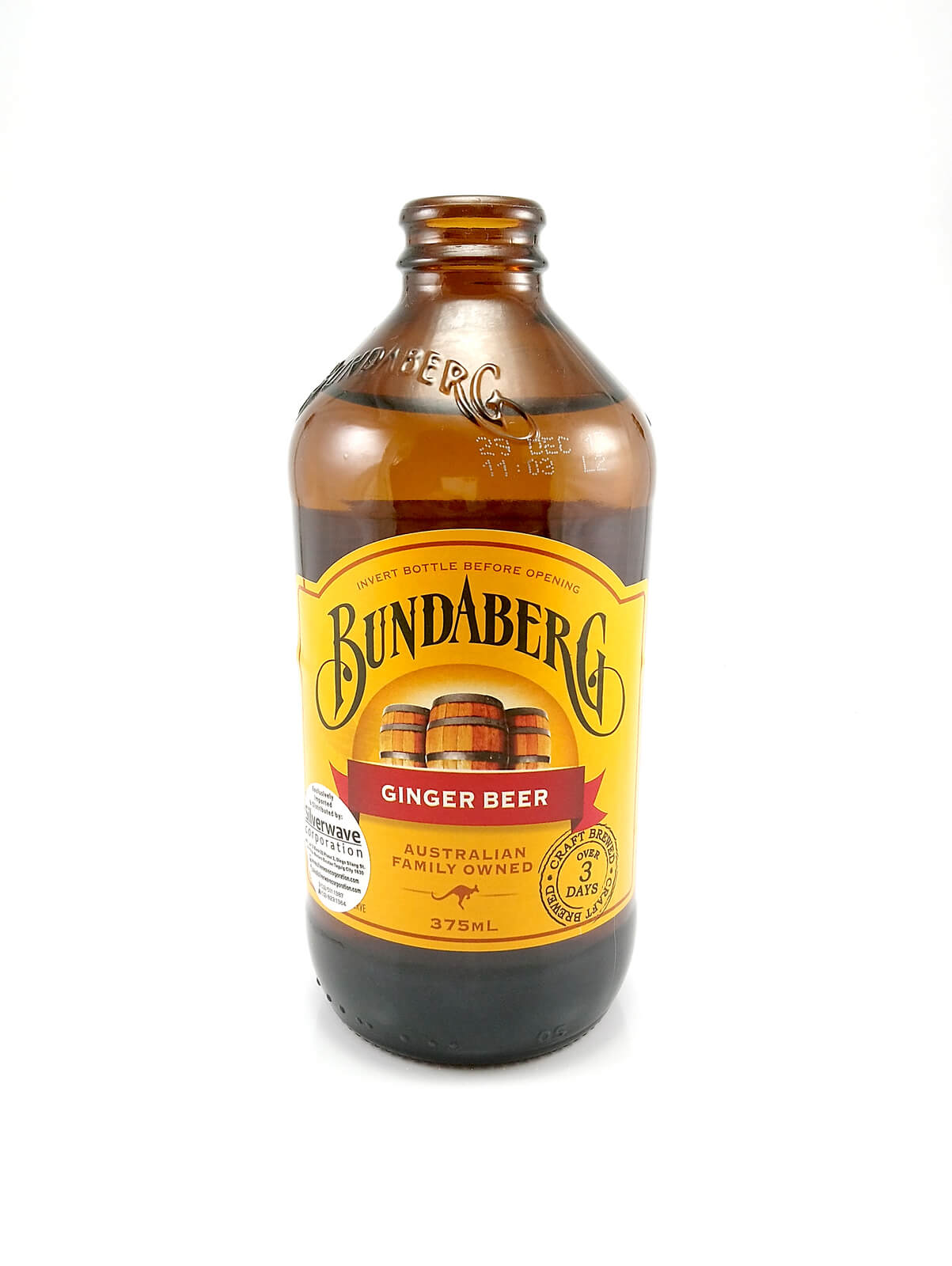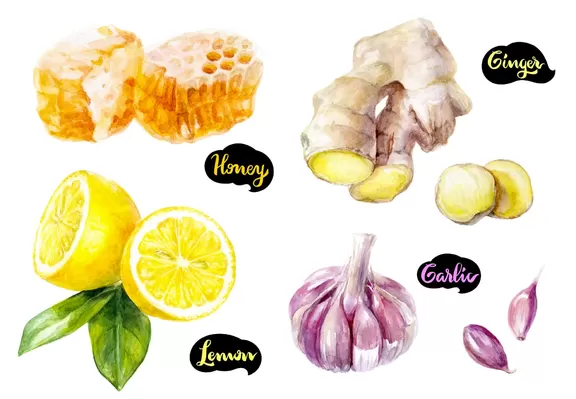
So, does ginger kill probiotic bacteria? And, if you take ginger, will this hurt the good bacteria in your gut? Research seems to indicate that ginger does not seem to harm popular probiotic bacteria the same way it does pathogens. In fact, ginger appears to have a prebiotic (promotes the growth of beneficial microorganisms in the intestines) quality. As research we will discuss will show, ginger routinely seems to increase the amount of beneficial bacteria.
According to the U.S. National Institute of Health, the most popular probiotics belong to the genera Lactobacillus and Bifidobacterium.(source 1) And, the studies we will investigate will look at how ginger impacts these two popular probiotic genera.
But, common knowledge seems to indicate that Lactobacillus bacteria is often used to ferment ginger. This means that these bacteria are able to withstand this herb, and grow in its presence. Common knowledge aside, as stated, research indicates that ginger helps bifidobacterium grow.
Yet, conversely, ginger is quite lethal to many pathogenic bacteria. As the article on Herbsey about ginger’s bacterial killing ability makes clear (you can read this article here), pathogenic bacteria do not thrive in the presence of ginger. This interesting duality of ginger on bacteria, helping the good and hurting the bad, may make it the perfect supplement for digestive health!
To reiterate somewhat, the final conclusion about ginger killing or being helpful to probiotic bacteria is: research seems to indicate that low amounts of ginger do not harm Lactobacillus, and promote the growth of Bifidobacterium. So, since most probiotics use these genera of bacteria, we can conclude that it is likely that a normal consumption of ginger will not pose too much threat to probiotics.
Dr. John Herzog (MD)
Dr. John Herzog, a "survival surgeon" from Maine explains what home remedies work best in a crisis situation.
This may be important in the event you require first-aid or are in an emergency situation without easy access to a hospital. Dr. John Herzog has assembled a large collection of home remedies for such scenarios.

Ginger and Lactobacillus

A study illustrating how ginger is harmful to a pathogenic bacteria and not to Lactobacillus species was published in Veterinary World [12.4 (2019): 614].(source 2) The study tested two different types of ginger and turmeric. More specifically these herbs were: red ginger (Zingiber officinale var. Rubrum), wild ginger (Curcuma xanthorrhiza), and turmeric (Curcuma domestica).
The probiotic bacteria used in the study were Lactobacillus acidophilus (L. acidophilus) and Lactobacillus brevis (L. brevis). And, concerning the pathogenic bacteria, the study used a strain of Salmonella.
Concerning the types of extracts used, the study used ethanol (drinking alcohol) to make an ethanolic extract and water to make an aqueous extract. The type of solvent used to create the extract appeared to have an impact on how the extracts affected the bacteria.
A 1.56% concentration of ethanolic red ginger extract (ERGE) caused L. acidophilus to grow slightly better than it did in just glucose (a type of sugar) alone. And, a 6.25% concentration of ERGE caused L. acidophilus to grow the best; and this growth was more than was seen with just glucose.
Very similar results were seen for the effect of ERGE on L. brevis. L. brevis grew better in a 1.56% concentration of ERGE than it did in glucose alone. And, a 6.25% concentration of ERGE caused the best growth improvement for L. brevis of the tested concentrations of ERGE.
Concerning the pathogen, an opposite effect was seen. A 3.13% concentration of ERGE totally halted all the growth of the Salmonella strain.
Claire Goodall’s Amazing Guide
Clair Goodall is a bee-obsessed, natural medicine convert from Minnesota (USA). And, she does keep bees!
Clair has created 350+ page book documenting how to replace the toxic products and medications in your home with healthier, all-natural alternatives.

Growth Stimulation of Lactobacillus & Bifidobacterium
The next study we will look at showed how ginger could positively influence the growth of Lactobacillus and Bifidobacterium strains. The study was published in the Journal of Food Science [82.8 (2017): 1807].(source 3)
The study used 17 strains of Bifidobacterium species and 16 strains of Lactobacillus species. These species were tested with various spice extracts; one of which was ginger.
The study found that a very small amount of ginger extract improved the growth of several of the Lactobacillus and Bifidobacterium strains. Additionally, the study reported that ginger had a prebiotic type of effect by helping the growth of beneficial bacteria while suppressing the growth of pathogenic bacteria. The following quote, taken from the study, expresses this:
…[Ginger] possessed prebiotic‐like effects by promoting the growth of beneficial bacteria in one hand and suppressing pathogenic bacteria on the other, suggesting their potential role in the regulation of intestinal microbiota and the enhancement of gastrointestinal health.
Journal of Food Science [82.8 (2017): 1807]
Probiotics & Fermented Ginger
Ginger is sometimes fermented in foods. One study that looked at lactic acid bacteria (LAB) and their use as fermenting agents with ginger was published in the Journal of the Science of Food and Agriculture [91.10 (2011): 1746-1750].(source 4) The study looked at yan-jiang, which is a fermented ginger food item of Taiwanese cuisine.
This study shows that lactic acid bacteria are used to ferment ginger. Thus, the ginger does not appear to be too toxic to certain lactic acid bacteria.

Comprehensive Herbalist School
Dr. Patrick Jones, founder of the HomeGrown Herbalist School of Botanical Medicine has been a practicing veterinarian for over 25 years. He is also a clinical herbalist and traditional naturopath.
Kevin Harrington, Original Shark from ABC’s Shark Tank, stands behind Dr. Patrick Jones and HomeGrown Herbalist.
Learn More
Comprehensive Herbalist School
Dr. Patrick Jones, founder of the HomeGrown Herbalist School of Botanical Medicine has been a practicing veterinarian for over 25 years. He is also a clinical herbalist and traditional naturopath.
Kevin Harrington, Original Shark from ABC’s Shark Tank, stands behind Dr. Patrick Jones and HomeGrown Herbalist.Learn More
Also, an interesting beverage known as a "ginger bug" can be made by fermenting ginger with Lactobacillus bacteria. If you look around on the internet, you may be able to find recipes to make this fermented drink.
Ginger May Help Colon Bacteria

A study published in Nutrients [12.10 (2020): 3194](source 5) looked at how ginger might influence colon bacteria. The study simulated the digestion process and subjected ginger to this in vitro (in a test environment) digestion process. The ginger was then allowed to ferment with fecal bacteria.
The study found that ginger could pass through the simulated digestion process and therefore may be able to reach the colon. When subjected to the fermentation with fecal bacteria, it was found that these bacteria degraded the ginger. The bacteria’s interaction with ginger caused a change in the bacteria in the fermentation process. The result was more beneficial bacteria, such as Bifidobacterium, were seen as a result of the ginger.
The study also found that 6-gingerol is the main polyphenol in ginger extract. 6-gingerol showed a possible prebiotic effect on the promotion of Bifidobacterium growth.
Another study, published in the European Journal of Nutrition [59.2 (2020): 699-718],(source 6) found that ginger seemed to promote the growth of Bifidobacterium. The study was done to see how ginger would impact obesity in mice.
This study made some interesting discoveries. Mice fed ginger had lower body weight, less liver steatosis (fatty liver disease), less low-grade inflammation, and an improvement in insulin resistance. Additionally, ginger supplementation changed gut bacteria composition and increased the prevalence of Bifidobacterium species.
The study concluded by suggesting their findings indicate ginger changes the gut microbiota (community of microscopic life) and that this change has a beneficial affect on obesity in mice.
Ginger’s Side Effects
Ginger is a very safe herb, and generally will not cause any problems for most people. Yet, possibly the most common side effect is upset stomach or heartburn—espcially if a lot is taken on an empty stomach.
Although ginger has the US FDA’s “generally regarded as safe” (GRAS) certification, there are still some side effects and warnings to be aware of. Possibly the two most important are that this herb should not be taken with blood thinners. And, if you have a history of gallstones, you should avoid this herb.
There are more side effects, drug interactions, and contraindications for ginger; but, are beyond the scope of this article. Herbsey has a full article dedicated to this topic. If you have some time, it is a thorough overview of the side effects of ginger. You can find it here: Ginger’s Side Effects.
About the Author
Geoff Kent is a natural medicine enthusiast who has been researching and writing about natural medicine since 2008. Geoff is primarily a web developer, but also researches and authors written and video content about natural health. Geoff has a bachelor’s degree in Management Information Systems from the University of Northern Iowa.
More on Geoff KentImportant Disclosures & Disclaimers
It is important to use the information you find on Herbsey.com in the right way. Also for legal reasons, these disclaimers and disclosures are necessary. For further information about each, feel free to click the link provided to the page on this website that provides more information.
Medical Disclaimer
The information on this website is not a prescription for anyone. This information is for informational or educational purposes only, and is not a substitute for professional medical advice or consultations with healthcare professionals.
Advertisement Disclosure
Some of the links provided on this article and website are affiliate links. If you purchase a product after clicking on these links, Herbsey.com will earn a commission. Herbsey.com promotes various products through advertisement and text links. For more information: Our Advertisements.







